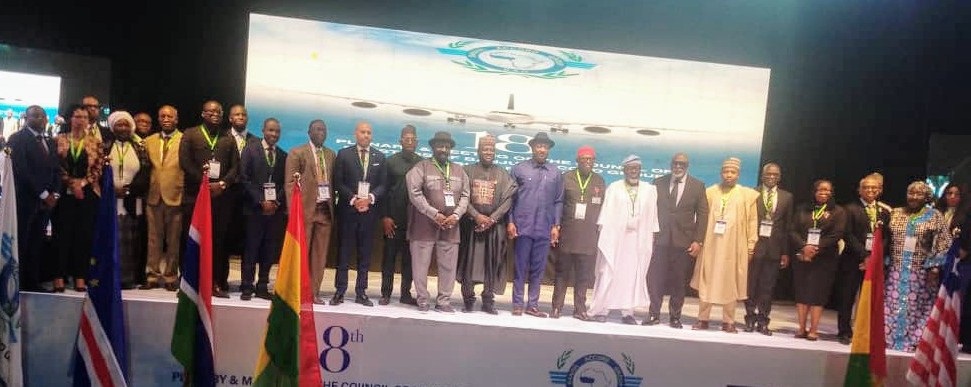Minister of Aviation and Aerospace Development, Mr Festus Keyamo, has called for the urgent implementation of the Single African Air Transport Market (SAATM) to foster regional integration and enhance intra-African connectivity.
Keyamo made the call on Monday while delivering the keynote address at the 18th Plenary and Meeting of the Council of Ministers of the Banjul Accord Group (BAG) held in Abuja.
According to him, improving air connectivity within Africa will significantly reduce travel time, lower costs, and provide optimal satisfaction for users.
He noted that enhanced connectivity was an asset that boosts the global competitiveness of cities, states, and regions.
“I want to highlight the urgent need to implement SAATM for the benefit of our sub-region and the entire African continent.
“SAATM represents a bold and visionary step toward achieving the African Union’s Agenda 2063 and unlocking the immense potential of air connectivity across our continent,” Keyamo said.
In spite of multiple declarations and political will, he noted that progress on SAATM had been slow, with airspace fragmentation remaining a barrier to regional integration.
He added that SAATM, if fully implemented, would enable smoother movement of passengers and cargo with minimal transit points and competitive prices.
He urged member states to go beyond verbal commitments and take coordinated, deliberate steps to bring the initiative to life.
“Our skies must no longer be defined by closed borders, but by open opportunity,” he said, reaffirming Nigeria’s commitment to the ideals of the BAG.
In his welcome address, Director-General of the Nigeria Civil Aviation Authority (NCAA), Capt. Chris Najomo, reiterated that the meeting was convened to strengthen collaboration on aviation safety, security, regulatory harmonisation, and sustainable development across the region.
He emphasised Nigeria’s support for BAG’s goals and the “No Country Left Behind” initiative by the International Civil Aviation Organisation, “which seeks to ensure equal participation of all states in global aviation standards.
“Let us keep our eyes on the prize – a safe, secure, and unified aviation sector in West Africa,” Najomo added.
Also speaking, Director-General of the Banjul Accord Group, Mr Fansu Bojang, highlighted that the group currently comprised seven member states: Cape Verde, The Gambia, Ghana, Guinea, Liberia, Nigeria, and Sierra Leone.
According to him, the group aims to promote safe and efficient development of civil aviation within and beyond member states.
This, he said, could be achieved through agencies like the Banjul Accord Group Aviation Safety Oversight Organisation (BAGASOO), responsible for aviation safety oversight and compliance.
“There is also the Banjul Accord Group Accident Investigation Agency (BAGAIA), which handles aircraft accident investigations,” he added. (NAN)





